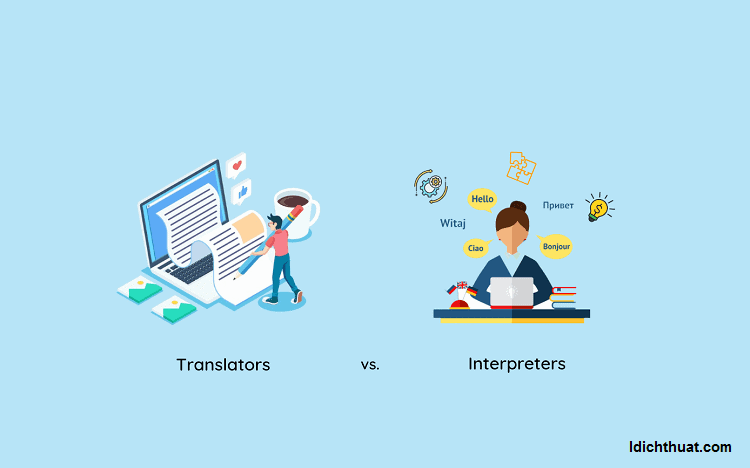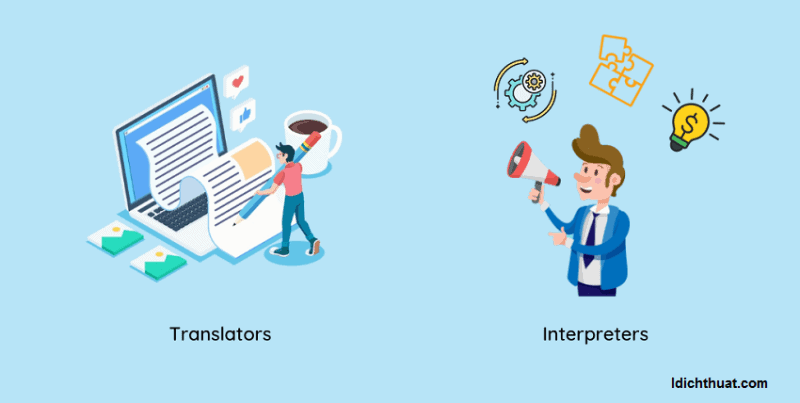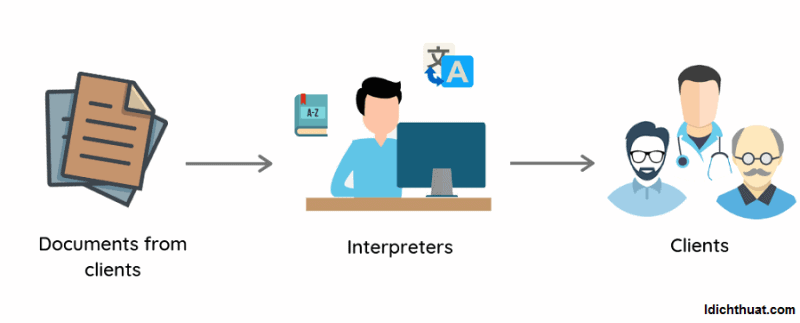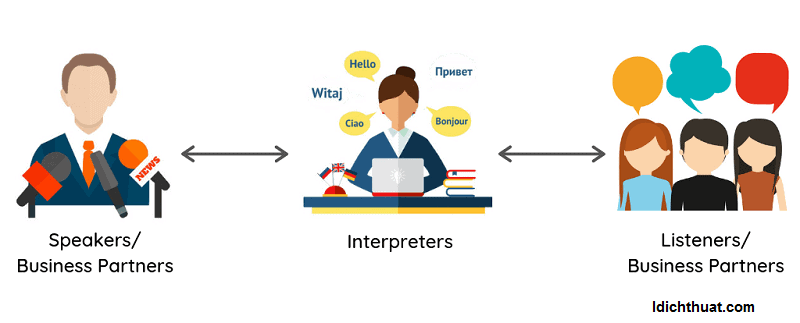If you ask any 10 people you know about the difference between translators, translators and Interpreters we are sure 7 or 8 of them will say that there is not any difference. To the general public, Translator and Interpreter are just two terms specifically for people who work in language translation. In fact, this belief is not completely wrong, but it is not 100% true either.
In today's article, we will dig deeper into the similarities and differences of Translator and Interpreter.
But first, let's redefine two terms:
Translator-translator: is a linguist who converts the source language text into the target language.
And Interpreter- Interpreter: is a person who converts oral messages from one language to another and vice versa.
Note: Translators: Top 06 Useful Tips Lời
Similarities Between Translators and Interpreters:
Both Translators and Interpreters work as an intermediary between two languages. Translators and Interpreters convert words from source language to target language. In short, they bridge the language gap between two different countries and cultures.
Not everyone can become a translator and interpreter. Translation and interpretation require long-term training, practice and experience. Possessing the right job skills and in-depth knowledge of languages and cultures along with language qualifications and certifications is indispensable for both Translators and Interpreters.
Note: 5 Frequently Asked Questions About Becoming a Translator
The Difference Between Translators And Interpreters:
(1) Necessary skills
Translators work with written documents on a daily basis so there is no doubt that they need handwriting skills and fluency in text with careful refinement of words and grammar. Because in the end, smooth, accurate and error-free documents is the purpose of translation. The meaning of the written content can be different for different contexts, therefore, a part of translators must read and study specialized documents to serve the highest purpose, giving priority to support. support the translation process. An excellent research skill coupled with the ability to use machine translation tools helps translators complete projects faster and still with high quality.
As for the Interpreters, they need to listen to the speaker and translate directly on the spot. It requires excellent listening and public speaking abilities. Moreover, because translations are almost instantaneous, Interpreters also need quick decision-making skills to deal with unexpected situations. Unlike Translators who get help with dictionaries or information on the Internet, Interpreters need to rely on their own knowledge and experience. Therefore, improving your knowledge and skills is essential.
Note: Top 4 Benefits of Hiring a Professional Interpreter
(2) Accuracy level
Since translators are given an adequate amount of time to translate and review a source file themselves, with the help of editors, specialized lookups and dictionaries, the level of accuracy is remarkably high. Needs book languages, or technical jargon that are perfect and ready to publish.
Meanwhile, the Interpreter is not required to translate every word in the speech exactly. They can interpret words as long as they ensure the core meaning of the person who wants to convey. Of course, to ensure the accuracy of the translated speech, the Interpreter should prepare well before the conference or meeting with pre-prepared words or speeches.
Note: To become a translation intern
(3) One-way and two-way translation
Translators and interpreters One-way communication:
As mentioned earlier, a qualified translator must be a native speaker of the target language. For example, when translating documents from English to Japanese, the native Japanese translator should take on the task. But there is no vice versa. If it is a Japanese to English project, you should not entrust it to a Japanese linguist.
Translators and interpreters Two-way communication:
On the contrary, two-way translation is a must for Interpreters. Interpreters are expected to translate back and forth in at least 2 languages. An interpreter for a Korean-Vietnamese hospital, said, can translate from Korean to Vietnamese so that patients can understand the doctor's advice or diagnosis. At the same time, he or she was asked to translate the patient's condition and response from Vietnamese to Korean for the doctors.
Note: Translation Certificate Program
Surely the above knowledge and views about Translators and Translators: Similarities and Differences You also understand some parts when you read this far, right? If you need more about learning the share translation experience or consultants can contact translation company Idichthuat. Or you need translation collaboration We are still recruiting, click contact Idichthuat For more details. We Specialized document translation in English, Chinese, Japanese, Korean, French, German, and Russian

Nguyen Trung Khang - Talented interpreter and translator, passionate about translation
Nguyen Trung Khang is a talented interpreter and translator, with many years of experience in the field of translation and linguistics. He graduated from Ho Chi Minh City University of Education, majoring in Linguistics in 2015.
After graduating, Mr. Khang participated in a professional interpretation and interpretation training course at the University of Foreign Languages - Hanoi National University. He achieved a high-level certificate in interpreting and interpreting, and was also awarded a master's degree in linguistics.



